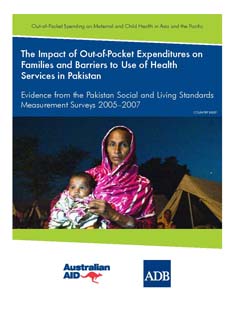The overall healthcare use in Pakistan is low due to a low responsiveness to illness symptoms. Increasing health awareness and changing health behaviors would be a key part of improving overall health outcomes.
Abstract
This policy brief presents findings from the Pakistan Social and Living Standards Measurement Survey (PSLSMS) 2005–06, and the Core Welfare Indicators Questionnaire (CWIQ) Survey 2006–07 (Federal Bureau of Statistics 2006 and 2007). The PSLSMS 2005–06 is a nationally representative household survey of 15,453 households, while the CWIQ 2006–07 survey sample includes 73,953 households. The findings of presented by this brief suggest that overall healthcare use in Pakistan is low due to a low responsiveness to illness symptoms. Increasing health awareness and changing health behaviors would be a key part of improving overall health outcomes. Further, the overall inequality in healthcare use is not great between rich and poor, but because poor Pakistanis are in worse health, there exists considerable inequity in access and use of services.
Content
- Background
- Data Sources
- Perception of Illness and Treatment Seeking
- Utilisation of Healthcare Providers
- Out-of-Pocket Spending on Healthcare
- Financial Impacts of Out-of-Pocket Expenditures
- Conclusions
- References

